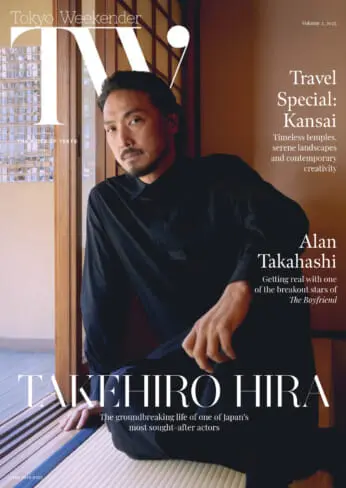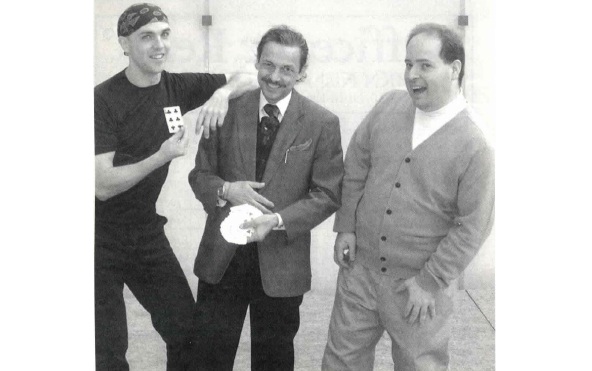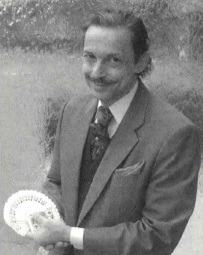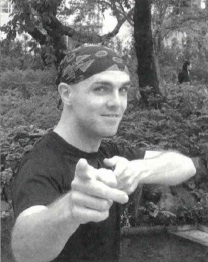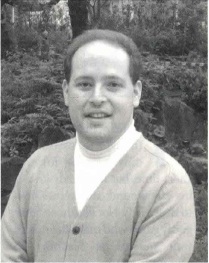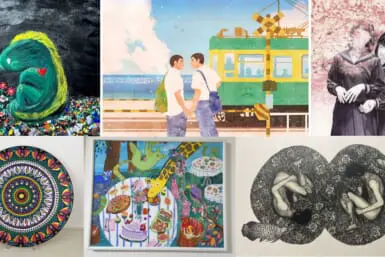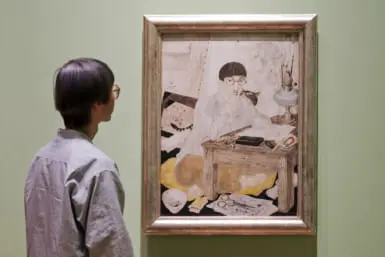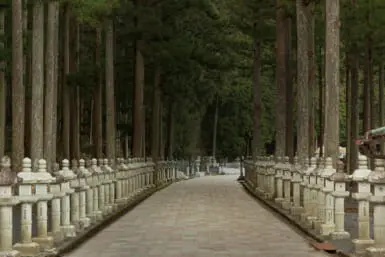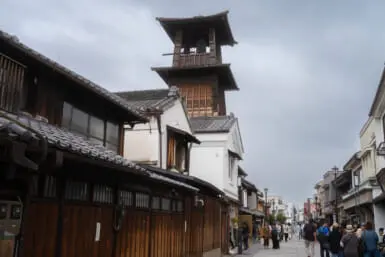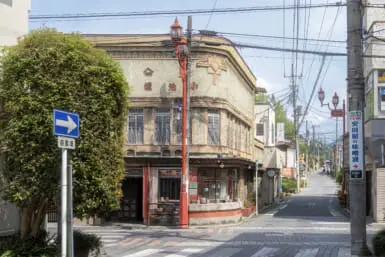The hours aren’t great, your customers can be difficult and the pay is sometimes lousy. But for many performers the love of the job and the thrill of working Tokyo’s clubs, bars and restaurants make it all worthwhile. Weekender hears from three such entertainers—the Canadian comedian Dave Gutteridge, the magician Dave Letendre and the jazzman Eddie Landsberg, both Americans.
The Magician: Dave Letendre
by James Mulligan
How would you describe your act?
Magic with a comedy touch.
Do you prepare your own material?
Yes, I have 200 books and 200 videotapes of lessons and performers, which I study.
Which performers do you admire?
Victor Borge and Jack Benny were two of my favorites. Bob Hope was another one who had great delivery.
Which of your performances sticks in your memory?
I did a show at a “Harry Potter” film party hosted by Warner Bros. I really enjoyed that one. There was also the time 1 did a show on a Junk ship in Hong Kong Bay. An agent spotted me and tried to convince me to stay in Hong Kong.
Who else is doing what you are doing?
There are a couple of “triers” out there, but I think I’m unique—a foreign magician performing in English and Japanese.
Is it possible to make a living from being a magician here?
Barely! I taught at a business college for years before I concentrated on my magic full-time around three years ago. But I enjoy the social aspect of performing and being able to do so in two languages. That’s what is important to me.
When did you come to Japan?
I came with the Air Force in 1969, and returned in 1974—that was when all the Japanese had black hair.
Were you doing this before you arrived in Japan?
I have been practicing my sleight of hand since I was 8.1 was always practicing tricks and trying them out on my family.
What was it like getting started here?
I started by volunteering to help with the children’s theater at Tokyo American Club. I got work through that—parents started calling me to ask me to perform at their child’s birthday party. Word-of-mouth helped me a lot. I then joined an agency, which got me work at theme parks. I worked the theme parks for 15 years. It was good pay but I wanted to get back to what I really like doing, which is birthday parties and corporate events and parties.
You really like doing kids’ birthday parties?
They’re great. I’m the guy to call for birthday parties. The kids love it. I always say, “Making children laugh is serious business.” You have to think about their age, the mix of boys and girls, and you also have to make it interesting and funny for any of the parents who are there.
So the grown-ups enjoy your shows as well. What kind of mix is there in your restaurant show audiences?
It depends on where I am performing. I get groups of young office ladies at my shows and grandmothers at other shows. The grandmothers think I am a stud. I’m 58 years old, so I flirt with them non-stop!
All kinds of groups come to watch my restaurant show. I do close-up magic, whereby I walk around from table to table. If one table sees another table laughing and joking with me, they want me to come over to them.
Don’t some people just want to have dinner in peace?
Of course. I can read situations very well. I have a social worker background, and I think that helps me judge whether some groups are approachable. An intimate couple or a group of serious businessmen may not want to be disturbed.
What do the restaurants tlrink of you wandering around their dinner tables?
They love it. I also try to reinforce their brand through my magic. I’ll do card tricks where I’ll make the restaurant name appear on a card. Customers won’t forget the restaurant name after that.
So where are you currently performing?
I’m doing weekly magic shows at Ichikoshi Cafe Diner in Cinza (next show is Oct. 24) and Tiki Tiki Polynesian Bar & Restaurant in Yokohama. I also do shows at Ben’s Cafe in Takadanobaba (next show is Dec. 3).
I’ve got a busy period coming up though, with all the Christmas and end-of-year parties. Hopefully I’ll be doing a lot of corporate events (his clients include JP Morgan Chase, Walt Disney and Allen & Overy).
How can other people get involved in magic here?
Give me a call! I’m looking for “magic” students and if there is enough demand, I may start
some classes—beginner, advanced, whatever the level.
Check out Dave Letendre’s Web site at www2.gol.com/users/davidlet.
The Comedian: Dave Gutteridge
by John Domokos
How do you describe your act?
Funny.
Any more detail?
The Comedy Store tries to give a flavor of many different types of comedy, and each comedian has his or her own style. The Tokyo Cynics name was around before I arrived, but it suits me down to the ground because I am extremely cynical.
Do you prepare your own material?
Yep. One hundred percent.
Were you doing this before you came to Japan?
I’ve been doing improv since I was 12, but I started the standup here in Tokyo.
What made you choose Japan as a place to do this?
It doesn’t matter where I am in the world—Qatar, Africa, anywhere—I would’ve done stand-up. It just took me years to get over the fear of doing it.
How did you get over the fear?
Many people say it’s the scariest form of performance. There’s always that class clown, who has that need to make people laugh. That feeling just takes over inside, and you get the determination to do it. But it’s always nerve-wracking. Butterflies are okay, as long as they are flying in formation-you have to control your nerves.
What was it like getting started here?
The people were very supportive. And because the market and talent pool is small, you get opportunities sooner than you would elsewhere. You can prepare all you like, but nothing teaches you like being on stage does.
Have you ever done a performance that went badly wrong?
I’d had a terrible date with a girl the night before a show, and I wrote all this material about it. But it didn’t really come out right. I sounded like some sad misogynist blaming her for everything. The crowd hated me—I could feel it. It was supposed to be a 10-minute set, but I was off after four.
I also did a really badly planned bilingual improv show.
There were three of us on stage, two of whom hated each other, and there were about three in the audience. It was 45 minutes of hell…but the show must go on.
What’s different about audiences in Japan?
Here they laugh at anything that’s different, but abroad they usually demand something insightful. The biggest difference is how quiet they are between jokes—very little heckling. I’ll shout out, “So how’s everyone doing?” Nothing. You really have to pull it out of them.
What are the challenges of doing this here?
The audience is so diverse—North Americans, British, Japanese and other nationalities. You have to find common themes. You can’t pick on a politician, or take a U.S. sitcom and make fun of a character.
There are two ways to go: either you go with really universal themes such as love; or you use the really specific, such as convenience stores-something we all know. It makes you up your game. As a result, I feel I can take my act anywhere.
The other challenge is that, like any endeavor here, people come and go. It’s always a worry that the talent pool will get smaller. We had an Irish guy who performed with us. He was great, but then he was gone the next month.
Is it possible to make a living from doing this here?
At the moment it’s just supplementary income, and gratuities from bars. In the future, I believe yes, but not right now.
What other jobs do you do?
I teach comedy workshops. I also do private gigs and narration work. If you take the workshops into it, I’m on the verge of making a full-time living from comedy.
How big can the comedy scene get in the future?
Japan is driving towards a bilingualism of sorts. Not only in comedy, but also in drama and other performing arts, many Japanese performers are learning English and want to perform in English. Also, as the foreign community grows, and learns more Japanese, many foreign performers will start using Japanese, hopefully me included. In 50 years, there will be a lot more comedy from both sides, I hope.
Are Japanese and foreign comedy compatible?
Most foreigners see Japanese TV and only see the stupid stuff; they can’t understand the rest. But many Japanese are very into ironic humor and witticisms. Of course, you can’t translate jokes, but some comedians do a good job of mixing Japanese and English, like Cloudy Bongwater. Another guy, Mike Naishtut (founder of Tokyo Comedy Store) tells the Japanese, “If you see the gaijin laugh, you laugh.” It works!
He’s also doing a show called “Sushi Brothers,” a bilingual mock manzai act, together with a Japanese comedian.
How can people get involved?
Come and talk to us. You can do stand-up, improv or sketch comedy. The Comedy Store runs many workshops-for example, we have one for foreign children, another for Japanese in English.
Where’s your next show?
Tuesday, Oct. 28, at The FootNik in Ebisu. Tokyo Cynics play every second Tuesday of the month at The Fiddler. (Takadanobaba), and every fourth Tuesday at The FootNik. The Tokyo Comedy Store has shows every Thursday at Bar Isn’t It? (Roppongi), in Japanese and English on alternate weeks.
For information about shows and workshops, check out our Web site: www.tokyocomedy.com
The Jazzman: Eddie Landsberg
by John Domokos
How do you describe your act?
Crooved up jazz, high on energy and a lot of showmanship. I do a lot of stupid stuff like climb on the organ, and generally try to keep it fun. My group features a Hammond organ, drums, guitar and sax…funky soulful whiskey-drinking Jazz.
Do you write your own material?
Yes, I write some originals and mix it in with a lot of standard jazz. I try to sound tight, but love the spontaneity of live shows.
What’s the jazz scene like in Tokyo?
Very similar to the U.S. – it’s surprising. There are so many great players around, a lot of talent—especially drummers. But the big issue here is money. A lot of guys come and play for free, so how can I ask a club where I am playing for more money to bring more performers? The musicians are not being business-like enough.
The other problem is space and money. Rents are so high for these places, that for a jazz fan to go and watch a show and have a few drinks costs at least ¥5,000. And a lot of people are afraid-they still have images of jazz clubs as dark, snobby, overpriced places. Young people haven’t heard the funkier stuff.
So where should people go to listen to jazz?
I often prefer jazz kissa to the big clubs. Kissa are not really clubs, more like little drinks bars, where there’s always an owner with a personality, who plays his jazz records. And you sometimes get people playing live.
What are the challenges in playing the club circuit in Tokyo?
My specific problem is that I play the Hammond organ-an instrument that weighs 250 kgs. It’s very difficult and expensive to move around, and not many clubs have one. It’s a huge risk for me to front the money to bring it to a show, because you never know how many people are going to show up. That’s why I play at Burglar—it’s one of the few bars in Tokyo with a real Hammond organ.
How hard is it to make a living out of it?
Hard. A lot of the top jazz players here have “real” jobs in the daytime. One of the best Japanese organists is a doctor. Gigging is great fun, but you never know where the next buck is coming from. And even though my record sales are quite good, I have still seen hardly any money from that.
What other jobs do you do?
Right now I do a lot of private music teaching. In November I am opening my own jazz bar called Eddie’s lounge—a real, downtown (in jazz speak that means the Shitamachi-Asakusa area) drinks bar. It’s a groovy ’60s and ’70s kind of place, with lots of paraphernalia on the walls…and a high-protein food menu (Landsberg has joined the vast ranks on the Atkins Diet).
Why did you decide to set up on your own?
A lot of clubs in Japan expect you to “play the door” (no advance payment, just a percentage of what the club takes at the door). So they are using the musician to get customers in to buy their drinks. I’m a musician, not a promoter.
This year I was offered jobs from two of the biggest clubs in Tokyo who wanted me to play the door. That was the breaking point for me. I thought, if this is the top of my field here, it’s time to do something differently. So I decided to open my own place, and I will concentrate on that more and more in the future.
How have you gone about doing that?
I’ve done it the traditional Japanese way—making friends in the area and building up relationships over a long time with local businesses. So, for example, if a customer asks me where they can buy good records, I send them to the local jazz record store, and he’ll do the same for me.
How do audiences in Japan compare to those elsewhere?
Audiences here are changing, becoming livelier than those in Europe. Or perhaps it’s me who’s changed—after 10 years here, I have learned how to push the right buttons and get the crowd going. You can’t just go in there and expect them to respond—you’ll just get polite clapping. If you play aggressive, they respond.
When’s your next show?
I’m at Burglar in Nishi Azabu on Oct. 25. Three sets from 8 to 11 p.m.; ¥2,500 gets you all three. The best way for English speakers to reserve and get more info is to call me at 3882-5241 or e-mail me at eddiebox71@hotmail.com. For more information go to eddielandsberg.weebly.com/
